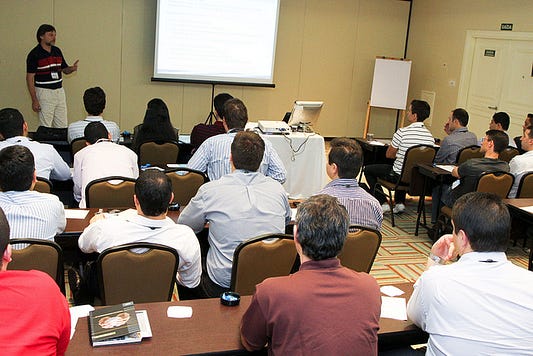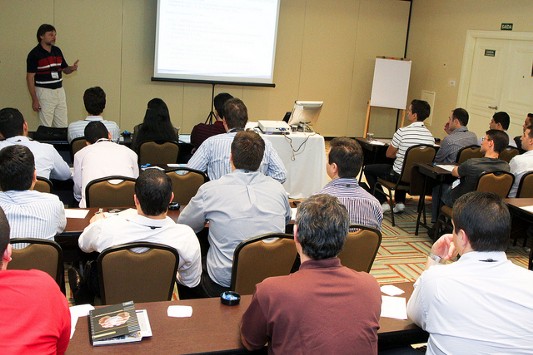Civics Education in the Classroom and Community
Civics education must happen in school, as well as other community-rooted institutions.
By Andrew Wilkes, Director of Policy and Advocacy
Civics education must happen in schools. But it can, and must, also happen in community centers, congregations, labor unions, and other membership-driven organizations. One way to define civics education is to focus on the development of knowledge, skills, and dispositions needed to constructively participate in democracy. Assuredly, much of this work occurs in classrooms across the nation. High school classes in U.S. government, courses which promote a student-led, project based approach to policy change, participatory budgeting in schools — all of these activities, notwithstanding some differences, are forms of school-based civics education.
Alongside school-based civics education, however, lies what we might call community-rooted civics education. These two forms of civics education are not mutually exclusive, but rather complementary approaches to preparing individuals to participate in our democracy. For many Americans, sanctuaries, workplaces, and assembly halls are the sites where the art of political debate is learned, organizing campaigns are planned, and lasting coalitions are built. These areas provide a sort of popular education in the practice of participatory democracy. The legacy of Septima Clark is instructive in this regard. Clark trained hundreds of Civil Rights activists through a grassroots citizenship education program at Tennessee’s Highlander school, eventually transitioning her work to Dr. Martin Luther King Jr.’s Southern Christian Leadership Conference. Alumni of Septima Clark’s citizenship education program constituted much of the first wave of post-Reconstruction, political leadership among African-Americans in the South.
My introduction to civics education mirrors the above-mentioned link between school-based and community-based civics education. In middle and high-school, my school offered social studies and government courses that were cognitively engaging but less ambitious — and less successful — in engaging my entire personality in the learning process. By engaging my entire personality, I mean that the experiential component — how does civics work in everyday life? — was missing. It wasn’t until college that I discovered such an experience. During the summer after my sophomore year at Hampton University, I taught at what was then Atlanta’s first Children’s Defense Fund (CDF) Freedom School. Based on the tradition of Mississippi Freedom Schools, the CDF Freedom School is a summer intensive in cultural and classroom-based education which seeks to instill academic achievement and civic commitment among low-income students of color. After a process of training and professional development, I had the distinct joy of teaching, and learning from, twelve second-grade African-American students. The classes covered CDF’s integrated reading curriculum — a series of lessons focusing on the themes of youth making a difference in their own lives, families, communities, nation, and world. Those experiences helped forge a culturally-rooted sense of civic resilience, skill, and knowledge in not only students, but also in me and my teacher colleagues, program administrators, and wider stakeholders of the program.
In my current capacity as Generation Citizen’s national Director of Policy and Advocacy, I look back on that experience and recognize that many forms of community-based civics education are Action Civics-adjacent forms of equipping young people for a lifetime of civic engagement. To strengthen participation in our democracy, we need a full continuum approach to civics education that highlights the importance of both school-based and community-based approaches. Nothing less, and perhaps nothing else, will adequately prepare a generation of young people to assume the opportunities and obligations of citizenship in our society.

Generation Citizen is a nonpartisan, 501(c)3 tax exempt organization which does not endorse candidates; our goal is to engage our staff, participants, and stakeholders in political and civic action on issues that matter to them personally and in their communities. The opinions expressed in this blog post are those of the writer alone and do not reflect the opinions of Generation Citizen.
